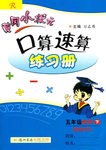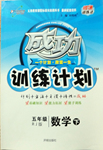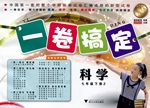题目内容
Does solving a math problem give you a headache? Do you feel nervous when you sit a math exam? For most students, math can be tough but scientists have proved that math problems can actually trigger physical pain.
Scientists came to his conclusion with an in-depth experiment, which was published in the Public Library of Science One journal. They began by finding out how much participants fear math. Those involved were asked a series of questions such as how they feel when they receive a math textbook or when they walk into a math lesson.
Based on their answers, participants were divided into groups. One group was made up of people who were particularly afraid of math and participants in the other group were more comfortable with the subject.
Both groups were then given either math tasks or word tasks. When a math task was going to come next, a yellow circle would appear but when a word task was soon to come, a blue square would be shown.
Using a brain-scan machine, scientists noticed that whenever people from Group One saw a yellow circle, their brain would respond in a way similar to when their body is feeling pain. It was like the pain they would fee, for example, if they burnt their hand on a hot stove. But they reacted less strongly when they knew that they would be faced with a word task.
However, scientists saw no strong brain response from people in the second group.
Math can be difficult, and for those with high levels of mathematics-anxiety (HMA), math is associated with tension, apprehension and fear. “When you are really thinking about the math problems, your mind is racing and you are worrying about all the things that could go wrong,” explained Ian Lyons from University of Chicago, US, leader of the study. “The higher a person’s anxiety of a maths task, the more he activated brain regions associated with threat detection, and the experience of pain.”
More interestingly, the brain activity disappeared when participants actually started dealing with the math tasks. “This means that it’s not that math itself hurts; rather, the anticipation of math is painful,” Lyons said.
Based on the study, scientists suggested that things could be done to help students worry less and move past their fear of math, which might mean they perform better in tests.
63. In the first stage, scientists ask participants some questions to _.
A. see whether math hurts B. find out how much they fear math
C. observe how their brain response D. test their endurance of pain
64. The underlined word “the anicipation of math” is closest in meaning to .
A. the attempt of learning math B. the motivation to work out math problem
C. the effort to understand math D. the act of thinking about math
65. Which is the best title for the passage?
A. How to overcome math fear. B. Physical pain affects math performance.
C. Math pain in your brain. D. Unknown truth about pain.
66. What can be concluded from the experiment?
A. The anticipation of math has no relation to students’ confidence in math.
B. Moderate mathematic anxiety promotes students’ academic performance.
C. Effective solutions have been worked out to lower students’ anxiety of math.
D. Physical pain caused by HMA disappears in the process of doing math problem.
BDCD

 课堂小作业系列答案
课堂小作业系列答案 黄冈小状元口算速算练习册系列答案
黄冈小状元口算速算练习册系列答案 成功训练计划系列答案
成功训练计划系列答案 倍速训练法直通中考考点系列答案
倍速训练法直通中考考点系列答案 一卷搞定系列答案
一卷搞定系列答案 名校作业本系列答案
名校作业本系列答案